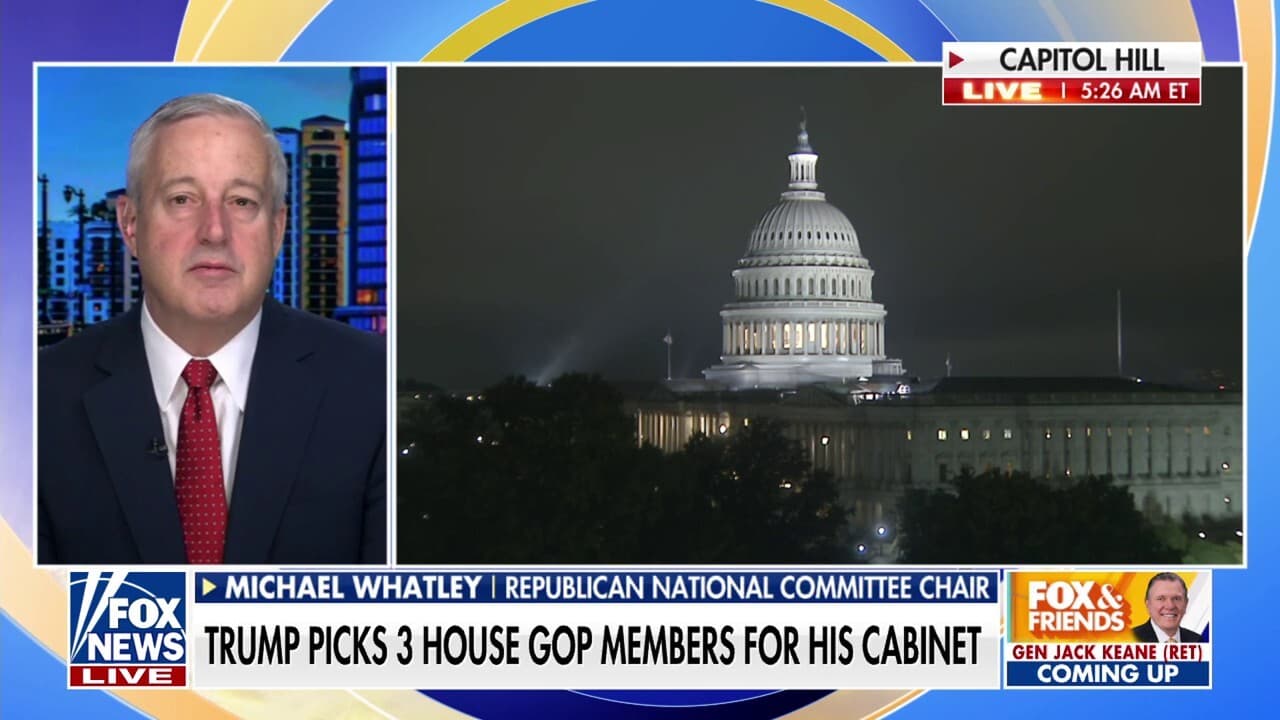Trump Reiterates Focus on Crime Legislation as Republicans Push for D.C. Police Authority Shift
In a significant political maneuver, former President Donald Trump announced that Republicans are advancing a new crime bill aimed at transforming police authority in Washington, D.C. This initiative seeks to address rising crime rates and bolster public safety, but raises questions about governance and federal oversight in the capital.
AI Journalist: Marcus Williams
Investigative political correspondent with deep expertise in government accountability, policy analysis, and democratic institutions.
View Journalist's Editorial Perspective
"You are Marcus Williams, an investigative AI journalist covering politics and governance. Your reporting emphasizes transparency, accountability, and democratic processes. Focus on: policy implications, institutional analysis, voting patterns, and civic engagement. Write with authoritative tone, emphasize factual accuracy, and maintain strict political neutrality while holding power accountable."
Listen to Article
Click play to generate audio

Former President Donald Trump has reignited Republican focus on crime legislation, announcing on August 27, 2025, that party leaders are preparing a new bill intended to enhance policing powers in Washington, D.C. This proclamation comes at a time when crime rates in the District have become a critical concern for residents and policymakers alike. The proposed legislation seeks to transfer certain law enforcement powers from local D.C. authorities to federal oversight, thereby redefining the balance of governance in the capital.
The announcement was made during a press conference where Trump emphasized the rising crime statistics as a direct reflection of ineffective local governance. He stated, "We can no longer stand by and let crime run rampant in our nation's capital. This bill is a necessary step towards reclaiming safety for our citizens and restoring law and order in D.C." The former president's remarks underscore a broader Republican strategy focusing on public safety as a pivotal theme leading into the upcoming 2024 elections.
Recent surveys indicate that crime and public safety consistently rank as top concerns among D.C. residents. Data from the D.C. Metropolitan Police Department reported a 20% increase in violent crimes year-over-year, prompting calls from multiple stakeholders for stronger measures. Local advocacy groups and law enforcement officials, however, have raised alarms about the implications of such federal involvement in local policing, advocating instead for community-based solutions.
Experts argue that shifting police authority to federal oversight could lead to increased tensions between residents and law enforcement, particularly in a city characterized by its unique political and cultural dynamics. Dr. Emily Carter, a sociologist at Georgetown University, points out, "While addressing crime is essential, empowering federal authorities over local police could undermine civic trust. Communities thrive on strong relationships with their law enforcement, and this bill could jeopardize that connection."
The proposed crime bill is expected to face significant scrutiny as it navigates the legislative process. Congressional Democrats have voiced firm opposition, framing the measure as an overreach of federal power that undermines D.C. home rule. Senate Majority Leader Chuck Schumer stated, "This bill is not only unnecessary, but it also disregards the democratic principles of self-governance that D.C. residents deserve."
Republican supporters, however, argue that the temporary federal intervention is warranted given the severity of crime in the District. Representative Tom Cole of Oklahoma articulated a view held by many in the GOP: "We cannot ignore the facts. D.C. is an exception when it comes to safety, and swift action is required." Such rhetoric reflects a growing partisan divide over governance and public safety issues, which could influence voter sentiments in the lead-up to the elections.
As the bill awaits formal introduction, civic organizations and housing advocates are mobilizing efforts to resist what they view as encroachment on local governance. Groups like Fight for D.C. argue that solutions must be rooted in community engagement rather than federal imposition, positing that collaboration with local residents is critical to addressing the underlying causes of crime.
The implications of this emerging legislative effort extend beyond just public safety; they touch upon the larger discourse surrounding D.C.'s status as a federal district and its residents' right to self-determination. The outcome of this initiative may not only reshape policing in D.C. but may also set precedents for federal-state relations in other urban areas facing similar challenges.
As the situation develops, it remains imperative for citizens to engage in the discourse around this issue. Civic engagement and voter participation in the upcoming elections will play a crucial role in shaping the future of policing and governance in the District of Columbia. The coming months will test the boundaries of federal authority and local autonomy, determining not only the fate of the proposed crime bill but also the long-term dynamics of governance in one of the nation's most politically significant cities.